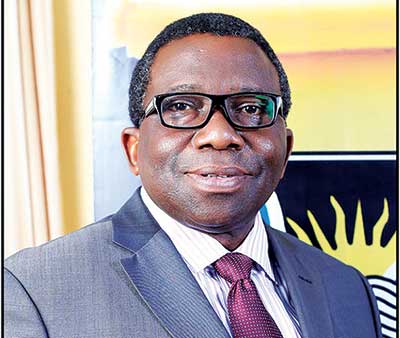
Nigeria is now on high alert over the Zika virus ravaging parts of the world. Already, to prevent the virus from spreading into Nigeria, the Federal Government has directed intense screening at the nation’s points of entry, including airports, land and sea borders.
The government has also among other measures, activated the surveillance and alert system currently in use in the fight against Lassa Fever Virus (LFV).
The Minister of Health, Prof. Isaac Adewole, who briefed journalists in Abuja, yesterday, directed Nigerians returning from affected countries to report themselves to any health centre if they start to feel any sickness that requires care.
“Such a person should inform the healthcare workers about their travel history. I have instructed the Port Health Services of my ministry to immediately adjust and include points of entry screening to capture anti-Zika activities,” he added.
Meanwhile, a new review published on Wednesday in the International Journal of Infectious Diseases has confirmed fears that the Zika virus pandemic could lead to the boycott of the 2016 Olympic Games in Rio de Janiero, Brazil; affect more countries in Europe; and hit sub-Saharan African sooner than expected.
According to the study, experts are gearing up to monitor the spread of the virus to enhance public health at the 2016 Olympic and Paralympic Games in Brazil and to deal with possible outbreaks in Africa and southern Europe.
Dr. Nick Beeching from the Liverpool School of Tropical Medicine in the United Kingdom (UK), notes that Aedes mosquitoes (the vector of the Zika virus), including both Aedes aegypti and Aedes albopictus, are common in the tropics.
Aedes mosquitoes have led to epidemics of dengue and chikungunya in the tropics and smaller outbreaks in Italy and France, suggesting that Zika, too, could spread to Europe. Other types of mosquito, more common to Europe, could potentially transmit Zika.
The virus is already present in the island country of Cape Verde, just off the West African coast, and Beeching expects it to appear soon in sub-Saharan Africa.
Guinea-Bissau, he speculates, could be next, followed by neighbours in West Africa and possibly Madeira, which is part of Europe. Madeira experienced a dengue outbreak in 2012 due to Aedes mosquitoes
On Lassa Fever, Adewole said: “As at today, 20 states are currently following up contacts, or have suspected or probable cases with laboratory results pending or laboratory confirmed cases.”
Meanwhile, Nigeria has so far recorded 176 cases with 108 deaths from the current Lassa Fever outbreak. This gives a case fatality rate of 61.4%, officials said yesterday.
“It is important that I inform the nation that this current outbreak is under control as evidenced by decline in new suspected cases, new laboratory confirmed cases and newly reported cases by week.
“Despite this achievement, however, you will agree with me that it will be dangerous if we go complacent at this stage, as we could record another flare-up and a second wave deep in the dry season. I have instructed the Nigeria Centre for Disease Control (NCDC) to work closely with the Lassa Fever Eradication Committee and other partners to develop a Lassa Fever Control strategy that will withstand the test of time.”
Still on Zika, the minister said the virus belongs to the flavivirus group to which yellow fever and Dengue viruses also belong.
“It was first discovered in Zika forest in Uganda in the year 1947 and transmitted to people primarily through the bite of infected mosquitoes of Aedes species among which are Aedes aegypti, Aedes Luteocephalus and A. albopictus. These are the same mosquitoes that spread yellow fever, dengue and chikungunya fevers. These mosquitoes exist in Nigeria and with the exception of Aedes albopictus, have been found to be transmitting yellow fever and dengue viruses.
“Nigerian scientists working in Western Nigeria in 1954 discovered Zika virus in Nigeria. Further studies in the years 1975 to 1979 showed that 40% of Nigerian adults and 25% of Nigerian children have antibodies to Zika virus, meaning they are protected against this virus.







